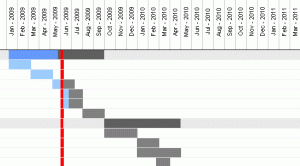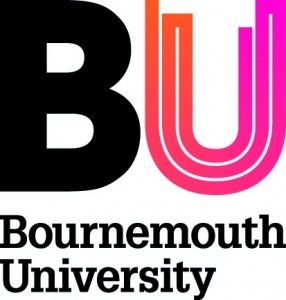 Following the announcement by the Vice Chancellor in August 2011 that CRE would move from Finance & Commercial Services I am delighted today to formally launch the Research & Knowledge Exchange Office (R&KEO) with the remit of supporting all research and knowledge exchange (formally enterprise) activity at BU.
Following the announcement by the Vice Chancellor in August 2011 that CRE would move from Finance & Commercial Services I am delighted today to formally launch the Research & Knowledge Exchange Office (R&KEO) with the remit of supporting all research and knowledge exchange (formally enterprise) activity at BU.
Under the new arrangements our existing research and knowledge exchange units will report directly to me forming a collection of discrete, but cognate elements. Administrative support for the new R&KEO will be based in the Research Development Unit working in support of all the different teams. An overview of the status of each team is provided below.
Research Development Unit – This will continue to be led by Julie Northam and has been expanded to also include knowledge exchange development. Two new posts will be advertised later this month: a research development officer to focus specifically on research ethics, governance and conduct, and a commercialisation and KTP officer.
RKE Operations – Previously CRE Operations, this will continue to be led by Julia Taylor. We are currently reviewing the R&KE processes and systems, with a view to improving the already excellent service delivered by this team over the next 3-6 months.
Business Engagement Unit – This is a new unit to be established as part of the HEIF-5 strategy. We will soon advertise for a Business Engagement Leader, followed by four Business Engagement Consultants each related to the investment themes set out in the HEIF-5 Strategy. It is hoped this team will be established from January 2012 and will work closely with the BU Foundation in developing BU as Knowledge Broker.
Graduate School – Professor Tiantian Zhang joins BU as the Head of the Graduate School in January 2012 when we will formally re-launch the Graduate School. Until then Fiona Knight, and the School PGR administrators are keeping everything running smoothly.
DM Centre for Entrepreneurship – The CfE is led by Professor Dean Patton and has recently moved into the Business Engagement Centreof the 6th floor of the EBC and currently in the process of seeking potential tenants initially around the two specific themes as set out in the HEIF-5 Strategy, namely: (1) digital and creative; and (2) tourism & leisure.
You can access a structure diagram of the new R&KEO here: R&KEO structure diagram
I will ensure future developments with the R&KEO are announced regularly via the BU Research Blog.
Matthew Bennett
 The next round of the internal small grants scheme closes this month on 31st May. The scheme provides up to £2000 per application for direct costs.
The next round of the internal small grants scheme closes this month on 31st May. The scheme provides up to £2000 per application for direct costs. Following the announcement by the Vice Chancellor in August 2011 that CRE would move from Finance & Commercial Services I am delighted today to formally launch the Research & Knowledge Exchange Office (R&KEO) with the remit of supporting all research and knowledge exchange (formally enterprise) activity at BU.
Following the announcement by the Vice Chancellor in August 2011 that CRE would move from Finance & Commercial Services I am delighted today to formally launch the Research & Knowledge Exchange Office (R&KEO) with the remit of supporting all research and knowledge exchange (formally enterprise) activity at BU.
 The Do’s of writing a good research bid:
The Do’s of writing a good research bid: 
 Today between 11am-1pm the Research Development Unit will be in the Atrium. Drop by for an informal chat and grab yourself a cake.
Today between 11am-1pm the Research Development Unit will be in the Atrium. Drop by for an informal chat and grab yourself a cake.











 Expand Your Impact: Collaboration and Networking Workshops for Researchers
Expand Your Impact: Collaboration and Networking Workshops for Researchers Visiting Prof. Sujan Marahatta presenting at BU
Visiting Prof. Sujan Marahatta presenting at BU 3C Event: Research Culture, Community & Can you Guess Who? Thursday 26 March 1-2pm
3C Event: Research Culture, Community & Can you Guess Who? Thursday 26 March 1-2pm UKCGE Recognised Research Supervision Programme: Deadline Approaching
UKCGE Recognised Research Supervision Programme: Deadline Approaching ECR Funding Open Call: Research Culture & Community Grant – Apply now
ECR Funding Open Call: Research Culture & Community Grant – Apply now ECR Funding Open Call: Research Culture & Community Grant – Application Deadline Friday 12 December
ECR Funding Open Call: Research Culture & Community Grant – Application Deadline Friday 12 December MSCA Postdoctoral Fellowships 2025 Call
MSCA Postdoctoral Fellowships 2025 Call ERC Advanced Grant 2025 Webinar
ERC Advanced Grant 2025 Webinar Update on UKRO services
Update on UKRO services European research project exploring use of ‘virtual twins’ to better manage metabolic associated fatty liver disease
European research project exploring use of ‘virtual twins’ to better manage metabolic associated fatty liver disease